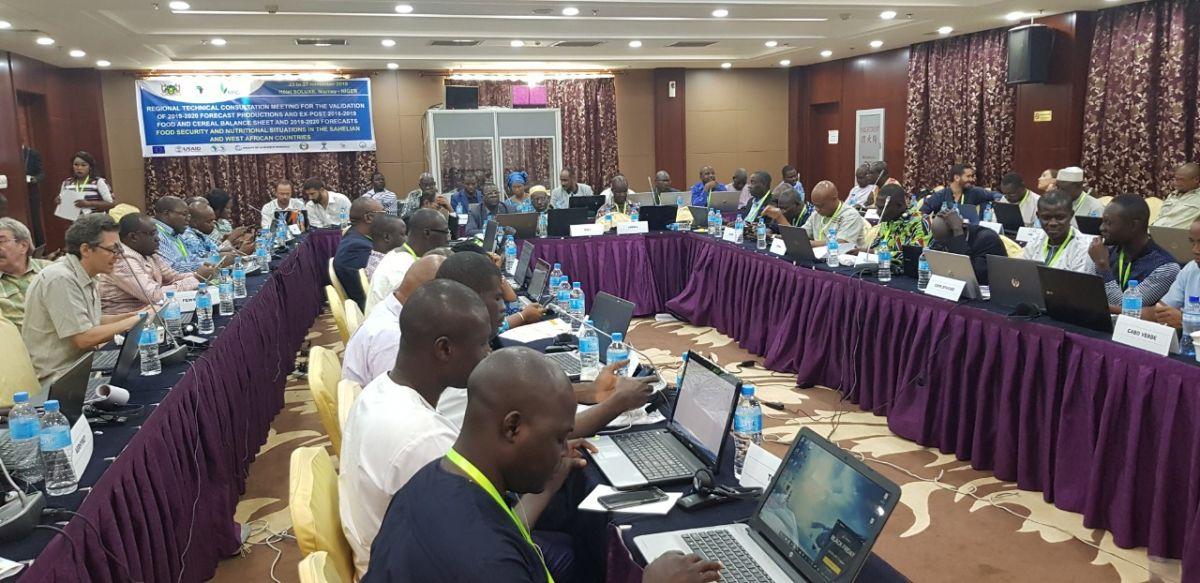The Regional Meeting of Experts on Food and Nutrition in the Sahel and West Africa had been concluded in Niamey, Niger on 27 November. 17 countries, 14 of which are OIC members and 12 IOFS members, presented their reports on agro-pastoral campaign for the 2018-2019 period and harvest forecast for 2019-2020.
For several years, the Permanent Interstate Committee for Drought Control in the Sahel (CILSS) and its partners have been leading the regional monitoring system for food security and nutrition in the Sahel region and West Africa (PREGEC). The meetings are held regularly every year in March, September, and November. PREGEC meetings, in particular, are designed to analyze current food and nutrition situation and propose adequate interventions to prevent food insecurity risks.
According to the submitted reports, the situation on agricultural production as a whole was assessed as satisfactory and stable compared to the average data for the last five years. Yet, the participants noted that the continuing civil instability in the region had exacerbated the vulnerability of the food systems, with 9.4-14.4 million people requiring urgent help.
The predicted exacerbation is the result of cyclical causes, including a localized shortage in grain and feed production due to drought, floods and deterioration of armed and community conflicts in the region. Security tensions have led to mass displacement, destruction or termination of essential social services (such as health and education), disruption of production and market flows. In Niger, Mali, northeastern Nigeria, and especially Chad and Mauritania, the prevalence of acute malnutrition is above the threshold (10-15%).
International organizations presented reports on the work undertaken in the region, according to which, humanitarian help meets the needs of only 50% of vulnerable groups due to problems in resource mobilization.
Heated discussions on forecasts made all stakeholders, both state and non-state sides, to question the effectiveness of current policies in agricultural, food security, and nutrition fields.
The Islamic Organization for Food Security, in turn, urged the participants to actively cooperate and briefed about its current projects and measures taken to stabilize the food security situation in member countries. The organization demonstrated opportunities for development, implementation, and coordination of more effective agricultural policies through joint efforts.
It should also be noted that North African countries are the largest beneficiaries of finances provided by OIC financial institutions, followed by Asian and West African countries respectively.
The meeting participants expressed a high level of interest in cooperation and noted the relevance of IOFS projects to current problems of food insecurity.
By the end of the meeting, the participants developed recommendation proposals for further work at both national and international levels to the governments of participating countries, CILSS, ECOWAS and UEMOA intergovernmental organizations, and regional international organizations.







